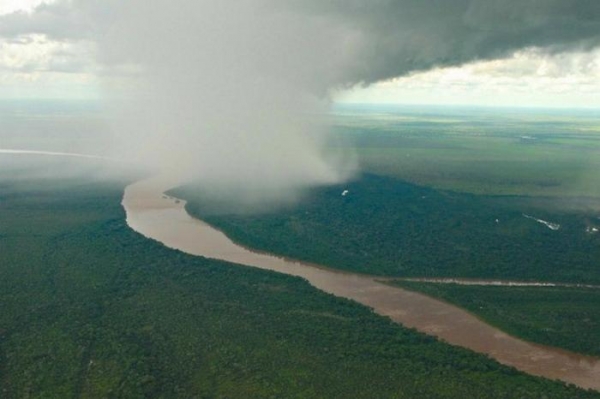In a recent paper, scientists wrote that a small population of polar bears living off Greenland and Arctic Canada increased by 1.6 times when they compared the numbers from the 1990s to 2013 and 2014.
articles
Brazilian Algorithm Aims to Project Future of Amazon Rainforest and Predict Changes in Carbon Capture
A group of researchers at the State University of Campinas (UNICAMP), in São Paulo state, Brazil, has developed an algorithm that projects the future of vegetation in the Amazon, presenting scenarios for transformation of the forest driven by climate change.
Bremen Researchers Cultivate Archaea That Break Down Crude Oil in Novel Ways
The seafloor is home to around one-third of all the microorganisms on the Earth and is inhabited even at a depth of several kilometers.
Tracking Climate-Driven Shifts in Fish Populations Across International Boundaries
As the ocean warms, marine fish are on the move—beyond their traditional habitats and across international boundaries.
Microbes Key to Sequestering Carbon in Soil
Microbes are by far the most important factor in determining how much carbon is stored in the soil, according to a new study with implications for mitigating climate change and improving soil health for agriculture and food production.
Repair, Reuse and Recycle: Dealing With Solar Panels at the End of Their Useful Life
UNSW Sydney solar experts say we need bespoke technology designed to recycle important elements inside solar panels.










